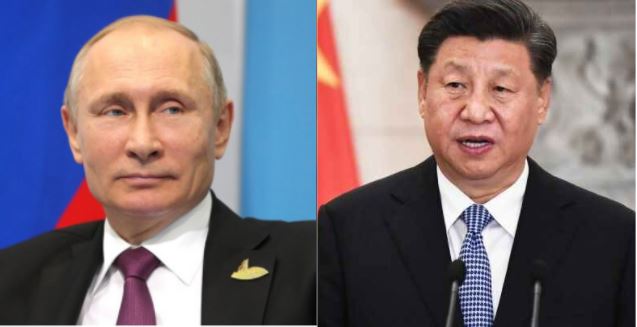Russian President Vladimir Putin has been addressing the rise of China’s influence within what is well known to be the sphere of Russian influence. The latest development in Greece is a major turn towards strengthening Russia’s hand. Belterra Investments Ltd took ownership of the port of Thessaloniki last week, one of Greece’s biggest ports, as per news reports. The company belongs to Russian businessman Ivan Savvidis, who has ties with the ruling United Russia Party. With the control of this port, Putin has unlocked the Mediterranian puzzle in toto.
The grand entry of Russia in Greece has rung alarm bells in Beijing, as it means that China will no longer be able to monopolise and influence the policies of Athens as per its wishes. For a long time, the Chinese Communist Party had tried to capitalise on others’ misfortunes. Given Greece’s precarious situation economically, it had to depend on major world powers for sustenance and to keep things running. Let’s just say, if someone is concerned about their existence, then sovereignty becomes an object of barter. China used the situation to its advantage and gained access to the biggest Greek port of Piraeus to further its Belt and Road Initiative.
Russia has already gained a lot of diplomatic capital around the Mediterranean Sea. Be it Libya or Syria, Moscow has supported them against the destabilising belligerence by Erdogan’s Turkey. Now by gaining control of Thessaloniki, Russia has entered the Mediterranean Sea with full force. It has ended the Greek dependence on Chinese capital, devoiding Beijing of any diplomatic monopoly it would have enjoyed otherwise.
The control over the port will unlock Crimean ports like Sevastopol that are blocked for trade with European ports given Turkey’s control of Istanbul and the Sea of Marmara – the gateway to the Mediterranean Sea. Russia has been active in setting up routes from the city of Sevastopol in Crimea to Thessaloniki, as well as from Sevastopol to Libya with an intermediate location in Thessaloniki ever since. Russian Railways also trumpeted to arrange for a ferry service from the city of Novorossiysk to Thessaloniki.
These interlinkages and connected routes have strengthened Russia’s trade and commercial movement throughout the Mediterranean Sea. The Russians have historically tried to gain access to the Sea for it is the linchpin to trade all over the European continent. The importance of the Sea can be gauged by the fact that Suez Canal links the whole Indo-Pacific with the Mediterranean Sea.
The Chinese headache does not end here. Russian President Vladimir Putin has created a well-laid plan to dismantle any semblance of the Chinese Belt and Road Initiative from the region. These actions of Moscow coupled with the INSTC make a killer combo to remove the practicality of the initiative. The International North-South Corridor is a multi-mode network of ship, rail, and road routes for transporting goods between India, Iran, Afghanistan, Azerbaijan, Russia, Central Asia, and Europe. The objective of the corridor is to increase trade connectivity between major cities such as Mumbai, Moscow, Tehran, Baku, Bandar Abbas, Astrakhan, Bandar Anzali, etc.
Going ahead as countries are becoming vary of Chinese intentions and do not believe that the USA under Joe Biden will take any serious action to contain China. An existing corridor can counter the Chinese BRI will sell like hotcakes. These possibilities combined with the reality of the Russian establishment in the Mediterranean Sea as a major player has taken China by surprise.
